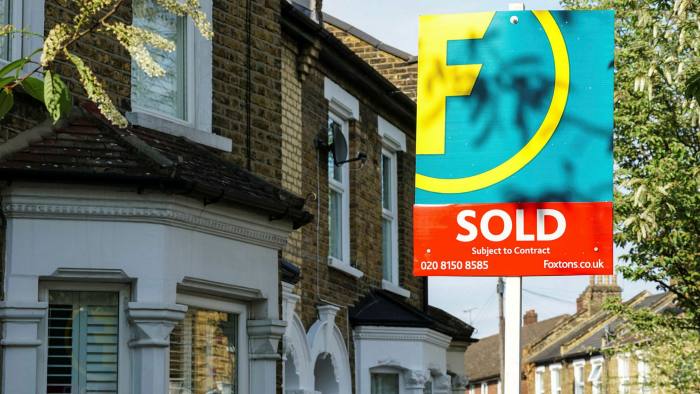UK house prices rise at fastest rate since 2014, official data show
02-17-2021
December surge reflects effect of stamp duty holiday and pandemic lifestyle changes

ONS said average house prices rose 8.5 per cent in the year to December 2020, up from 7.1 per cent in November © Marcin Rogozinski/Alamy
Bethan Staton in London
UK house prices rose at their highest annual rate since 2014 in December, as the effect of government intervention and pandemic lifestyle changes buoyed the property market despite economic uncertainty, according to official data.
Average prices increased 8.5 per cent in the year to December 2020, up from 7.1 per cent in November, reaching a record high of £252,000, the Office for National Statistics said on Wednesday.
The rise reflected the effect of the stamp duty holiday, a tax exemption on the first £500,000 of residential property purchases that will end in March after being introduced by the government in July last year.
The mini-boom was also driven by increased demand, as people trapped inside by months of lockdown reassessed what they wanted from their homes.
“With demand from buyers for more space — both inside and out — outstripping supply, prices inevitably edged upwards,” said Mark Harris, chief executive of mortgage broker SPF Private Clients London.
“Business has remained brisk as buyers try to take advantage of the stamp duty holiday and lenders and solicitors pull out all the stops to get deals across the line before the end of March.”
An increased appetite for space was reflected in growing demand for detached properties, which increased 10 per cent in price in the year to December, compared with a rise of just 5 per cent for flats and maisonettes.
Prices rose fastest in the North West, where they grew 11.2 per cent, compared with a relatively sluggish 3.5 per cent in London which saw the lowest growth.
However analysts said the price surge was unlikely to last long into the new year, as the end of the stamp duty holiday and challenging economic conditions make prospective buyers less willing, and able, to purchase homes.
Estate agents have called for a continuation of stamp duty relief beyond March, but chancellor Rishi Sunak has indicated he is minded to stick to the deadline set out in July.
According to the Nationwide index, released at the beginning of this month, house prices fell 0.3 per cent month-on-month in January. Robert Gardner, Nationwide’s chief economist, said the fall reflected a “tapering of demand” as the added motivation of a tax break ebbed.
Sales, new inquiries and price expectations all softened in December, according to a survey by the Royal Institution of Chartered Surveyors.
“Evidence already is accumulating that prices will fall back this year,” said Samuel Tombs, chief UK economist at consultancy Pantheon Economics, pointing to the Nationwide figures and data from property portal Rightmove, which showed asking price growth fell to 3 per cent in February from 6.6 per cent in December.
“Housing demand also likely will weaken later this year as government support for the labour market is tapered, pushing up unemployment, and as people gradually return to pre-Covid spending habits, leaving less cash left over for housing,” he added.

